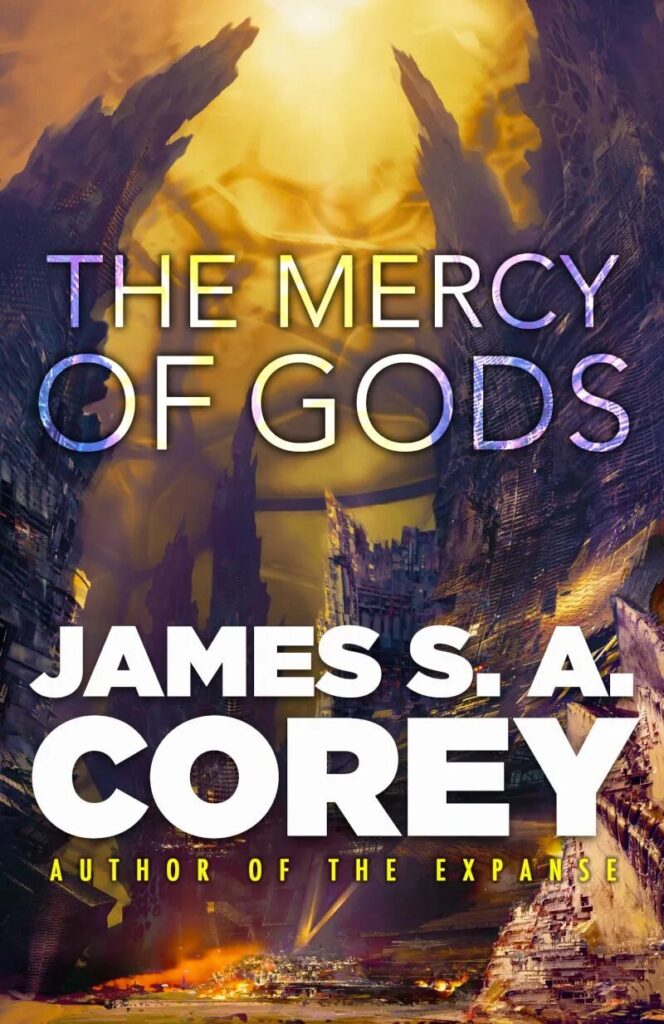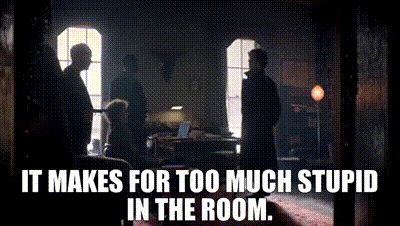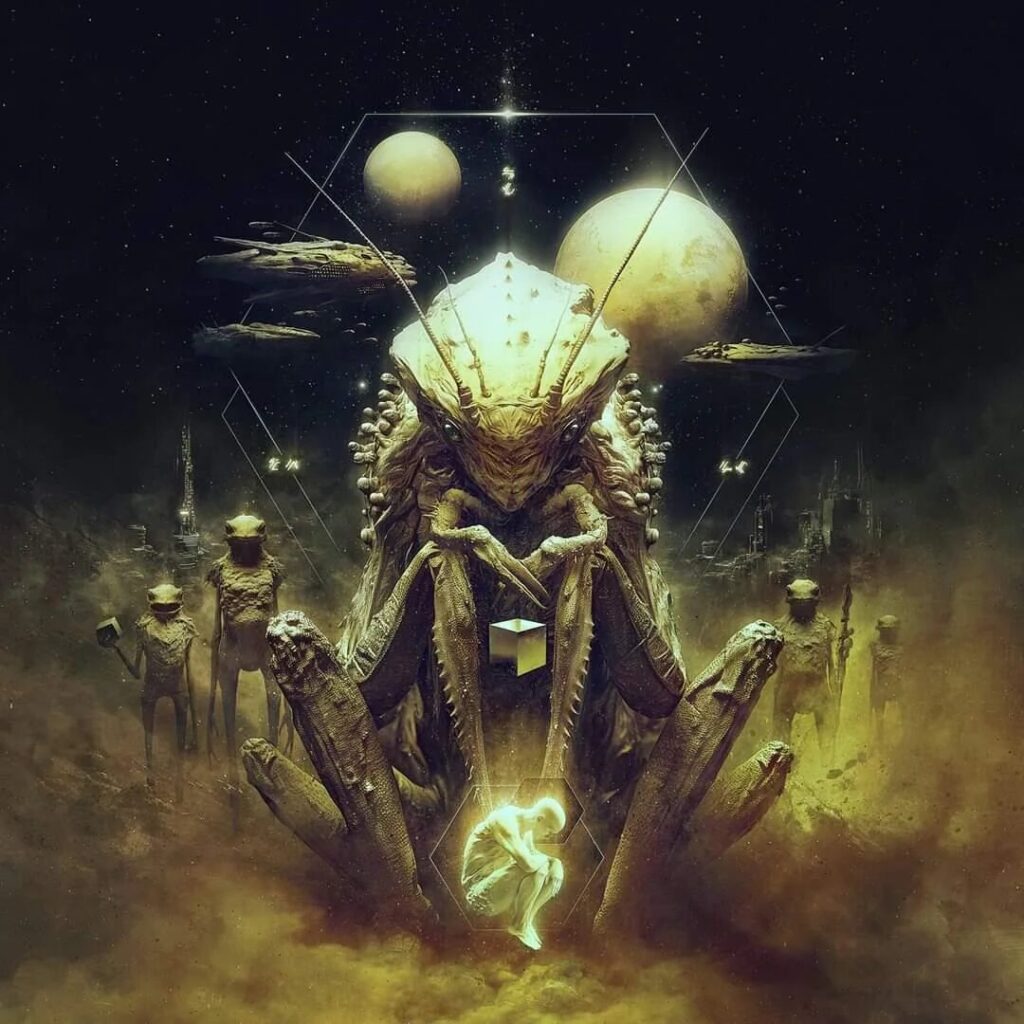
The Expanse is a pretty great series. Those books were so good, they spawned a TV show and legions of fans. So, when I saw that James S. A. Corey (which is a pen name for Daniel Abraham and Ty Franck, who write as a team) released something new, I jumped at it. The Mercy of the Gods is part of a new trilogy called The Captive’s War, and it is not set in The Expanse (to get that out of the way).
So, is it any good? Well, Corey is a good writing team who has produced an excellent series, so I had fairly high expectations, and I think that might be part of the problem. What I mean is that the book is . . . pretty good, it’s just not as good as I was hoping it would be. A big chunk of that has to do with the characters, who are all really well written, but kinda hard to empathize with. It’s not because they’re impossible to like, or hard to identify with (though some of them are), but rather it feels like we don’t get enough time with any one character to really latch onto them.
The basics & stats
Audiobook length: 14 hrs 54
Narrator: Jefferson Mays (also narrates The Expanse)
This book is billed as a space opera on the “jacket,” but pretty much all of it takes place on one of two planets. Sure, they’re alien worlds, but there wasn’t much “space” in this space opera. That’s not a bad thing, necessarily, but it doesn’t really feel space-opera-like. If you’re expecting space exploration, space battles, and other space stuff, don’t. In fact, I don’t think this fits neatly into any sub-genre of sci-fi, though it does lean into hard sci-fi decently well.
The Mercy of the Gods is distinctly alien while also driving deep into the minds of those who find themselves unexpectedly and violently thrust into an otherworldly existence. The concept and world building are both fascinating and engaging, putting the idea that intelligent alien species might think very differently than we humans do.
Even with all of this good writing and these intriguing concepts, I think there is are two, simple issues with the book (which might be exasperated by reading it as an audiobook):
- There are a lot of protagonists and, therefore, perspectives from which the story unfurls.
- There might be a little bit too much stupid wrapped up into one character.

So many perspectives
There are 9 or 10 protagonists who have at least one section of the book told from their perspective. That’s a lot of POV shifts! Yes, Dafyd Alkhor is the main protagonist, and most of the story is at least centered on events that happen to or around him, but it’s pretty easy to get lost in the interwoven perspectives, thoughts, motivations, jealousies, etc.

These characters are a part of a research team on the cutting edge of biology, hailing from a human world called Anjiin that is not Earth. The humans that live there know they did not natively evolve on Anjiin, but they also have no idea how humanity got its start on on the planet, or where they all lived before that.
Typically, in a book like this, with many POV shifts, I find myself latching onto one character that I really like or empathize with so that I can use that person as a sort of anchor to keep me invested in the story. I found that kind of hard to do with Mercy of the Gods because I didn’t get enough time with any one character to really get attached. Dafyd is definitely the closest, but I didn’t find myself truly rooting for him until close to the end of the book, where he’s forced to make some terrible decisions for the greater good.
Add to that the alien symbiote-like thing that takes over one of the characters, and the perspectives and motivations get a little . . . weird.
Short summary so this makes more sense: Anjiin is invaded by a hyper-advanced, coldly pragmatic species called the Carryx. They’re bag is to invade planets and subjugate the species that live there. Dafyd and company are selected to prove that humanity can be a useful subject species by, ostensibly, kicking ass at biology. They’re given a lab and a project to complete, and they’re competing with other species who are trying to do the same thing.
One of the scientists in Dafyd’s group has been, essentially, possessed by an alien symbiote (no, it’s not Venom) who is really a spy for another species who is fighting the Carryx. Our symbiote, and the person it is driving around like an enhanced Edgar Suit, also get some “screen time” adding to the spread of voices telling the story. Oh, there are even sections told from the perspectives of a couple of Carryx too, just to keep things spicy.
It’s a lot to keep track of, and I think it fragments the story a little too much. Maybe it’d be easier to keep track of if you’re reading the book rather than listening to it?
So much stupid
For me, another problem I had generating empathy while reading this book is the massive and undeniable stupidity of Urrys Ostencour, who, on Anjiin, was a security officer. This moron decides to start a resistance movement against the Carryx–a species that opens the first contact dialogue by killing1/8th of the population of Anjiin in minutes just to prove that they are serious. Ostencour’s reasoning for the rebellion basically goes like this: “We’re all gonna die, may as well go out poking the Carryx in the eye!”
Why does this piss me off? Simple: it’s just so stupid. It’s pointed out to Ostencour that, if they try anything significant (e.g., developing a bioweapon to kill Carryx), not only would it have no measurable impact, but it might also mean the complete and total extinction of the human species.
Does that deter him? Nooooooo. It’s unforgivably stupid, and while that’s not a reason to knock the book on its own, the sheer, logic defying idiocy of this, and the lack of solid arguments against it actually seem like a bit of a plot hole. I mean, it’s not really, but it felt like one to me.

Dafyd is described and proves himself to be a downright savant when it comes to reading people most of the time–he even learns to understand the Carryx (ultimately a key reason a lot of humans live), but he doesn’t once make this simple argument: “As long as we’re alive, there is hope, but if we go get ourselves killed for symbolism, we’ll not hurt the Carryx at all. We can’t be martyrs if there aren’t any humans left to avenge us.”
The whole rebellion angle is just . . . so incredibly frustrating, especially when you consider that the the Carryx chose the most elite they could find to represent humanity–pioneers or geniuses in their respective fields. You’re telling me Ostencour couldn’t see the long game? Even if he wasn’t “elite” but just happened to have a high rank? Nah, I don’t buy it. Unless, maybe, the Carryx chose him specifically because they knew he’d be a problem and wanted to see how the other humans handle it? Eh . . . seems like a stretch.
The good, meh, and the bad

Carryx from the Polish book cover according to Reddit
The good: The world building is excellent. Corey leaves just enough mystery around it to give the reader room to speculate. There are a lot of unknowns, but not so many that you can’t follow along with current events. Humans aren’t from Aiijin, they don’t know where they come from, they don’t know why they’re being invaded, and they don’t understand the place they’re taken to . . . it’s a lot of unknown, but because of the excellent word-building and the humanity of the characters and setting, it feels totally manageable (even though you are left wondering at the end because, you know: it’s book 1 of a trilogy).
The meh: Like I said above, there are a lot of protagonists, and it’s a lot to keep track of. The POV shifts around constantly, and I feel like more time focused on a narrower set of characters would’ve been a bit better. It’s here in the “meh” section because I think Corey pulls it off about as well as anyone could–it doesn’t kill the story, but it can be frustrating when it comes to building up empathy for specific characters, or if you just really like one of them and one more time in their headspace.
The bad: The stupid, stupid rebellion plot. I know some of you are thinking, “hey, it sparked a lot of emotion from you, and that’s a good thing!” Normally, I might agree with you, but I was angry because I thought that the whole plot was counter to what a character with Ostencour’s background would actually do. I was mad because, until I got used to the idea of Ostencour being a monumental dumb-dumb, the whole idea of his rebellion took me out of the story. It was just too stupid and too short-sighted. There’s an argument to be made about how that’s just one of humanity’s many faults (just ask a climate scientist), but it really bothered me in this book. It might not bother you as much.
The verdict
Highlights:
- I can’t emphasize this enough: the world building and the take on intelligent extra-terrestrial life are both awesome
- The balance between “WTF is happening?” and presenting an estranged branch of humanity in a recognizable way is masterful
- Ostencour is a stupid-head, and I feel like his part of the story could’ve been handled better while keeping needed events in tact for Dafyd and the story to advance
- This is not a happy book–that’s not good or bad, just something you should be aware of going in
Score (out of 5)
Wordcaster score: 4
Wider audience: 4
Audiobook performance: 3
